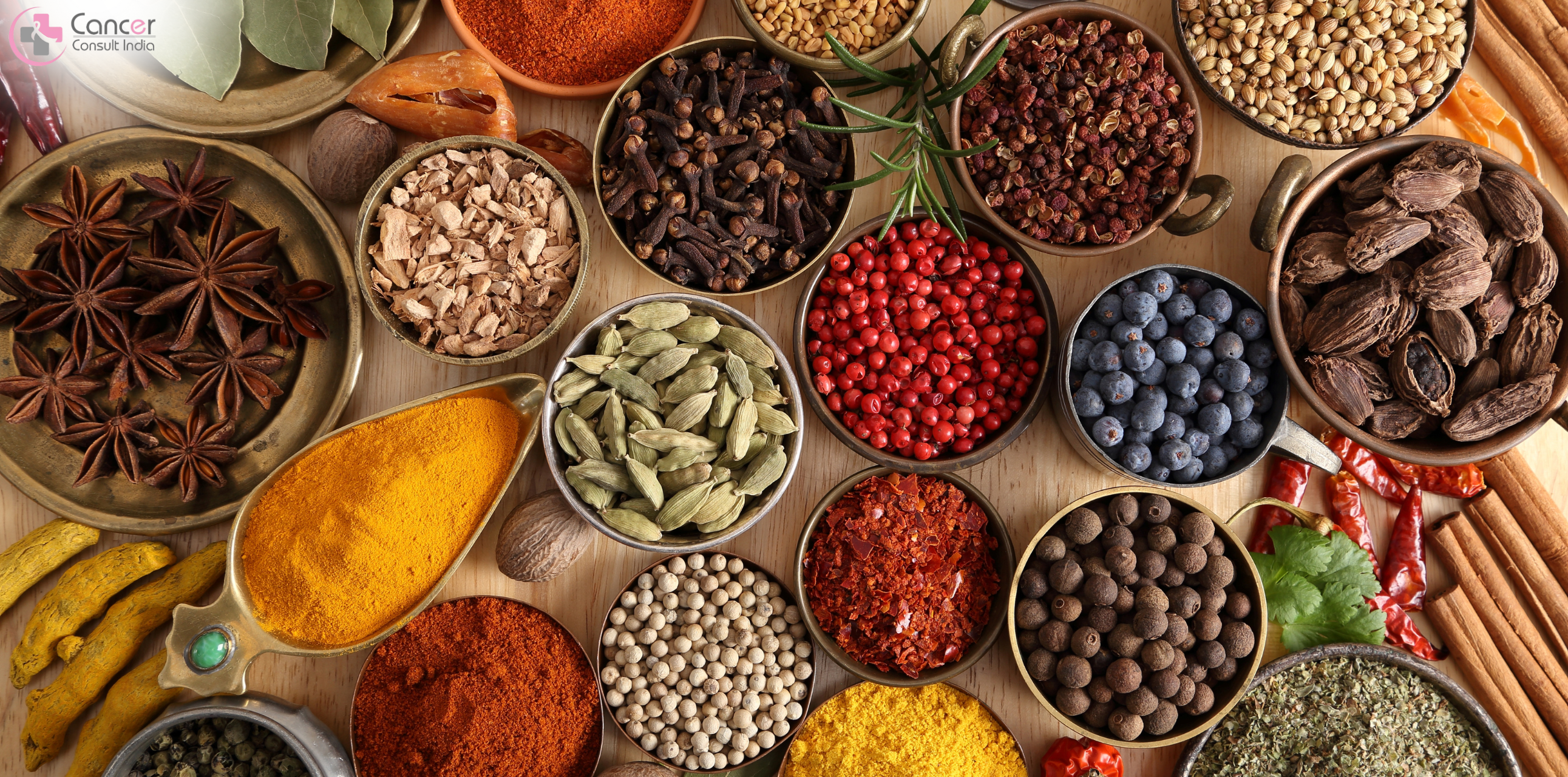Dr Manish Singhal - The best Cancer Specialist in Delhi
Are Cancer Causing Chemicals Found in Indian Spice Products?

Vivid flavors and countless health benefits have always been associated with Indian spices. They are essential in culinary practices and are highly regarded for their medicinal value. However, of late, there have been some safety doubts about these beloved condiments.
In particular, people are asking if Indian spice products contain cancer-causing chemicals. This blog post looks at these fears by considering the evidence available, possible sources of contamination, and measures suggested by a cancer doctor in Delhi to be adopted by consumers to protect themselves.
The Magic of Indian Spices
Before discussing the concerns themselves, let us take a moment to acknowledge the importance of Indian spices. Turmeric, cumin, coriander, and chili powder are among the most commonly used flavorings in India.
For example, turmeric is believed to be a superfood because it has anti-inflammatory properties, while cumin and coriander contain antioxidants that help fight off free radicals in our bodies. On the other hand, capsaicin found in chilies has been known to increase metabolism as well as reduce pain sensation.
The Source Of Concerns
The worry about cancer-causing agents in spices mainly comes from the contamination of these products with hazardous substances. An Oncologist in Noida states that Aflatoxins and pesticide residues are the two major culprits.
Aflatoxins: Silent Killers
Aspergillus flavus and Aspergillus parasiticus produce toxic compounds known as aflatoxins. It can be very dangerous if consumed over time or in large quantities, such molds may infect crops such as peanuts and corn or even during the storage stage. There, they come into contact with moisture content created due to warm temperatures prevailing within regions like India with high humidity levels throughout year-round.
Aflatoxins are potent carcinogens – this means that they cause cancer among humans more than any other type so far identified. Ideally, many cancers related to liver cancer have been associated with exposure long enough, even at lower doses, but sustained exposure would still harm health.
In India, where it is hot and damp much of the time, conditions are often favorable for growing molds that produce aflatoxin, which can easily find its way into spices. Researchers found that several batches of spice had higher than acceptable levels when they were stored inappropriately or for too long.
Pesticide Residues: Unseen Danger
The other thing we need to worry about is whether there might be any pesticide residues left behind on these seasonings. Pesticides are widely used in farming to protect crops from being destroyed by pests and diseases.
However, if not handled properly, such as applying them excessively or failing to observe the waiting period before harvesting, then this could lead to high amounts of pesticides ending up within our food chain through the final product consumption stage.
Some types have been identified as carcinogenic agents, but even those that are not carcinogens may still pose serious risks over an extended period when present at significant levels.
Proof & Studies
Indian spices have been found to contain these pollutants in various studies. In a 2020 report issued by the journal 'Food Control', examples of common spices were tested, and it was found that a detectable level of aflatoxins was present in many of them. Also, the Indian Council of Medical Research (ICMR) discovered pesticide residues among different types of seasonings; some exceeded the limits set by authorities.
Rules and Challenges
To control the levels of aflatoxins as well as pesticide residues in food products, India has strict laws. The Food Safety and Standards Authority of India (FSSAI) sets maximum permitted amounts for these contaminants while also carrying out routine checks on all kinds of eatables, including spices. Nevertheless, implementation may be difficult due to the vast quantities produced, with the complex supply chain systems involved.
Furthermore, there could be contamination at various points ranging from farms through storage until processing. Small-scale farmers lack the facilities and knowledge required to handle stores properly causing accidental pollution.
Ensuring Safety Measures
To minimize chances of coming into contact with dangerous substances found in spices, take note as a consumer:
1. Buy from Recognized Sources
Get your spice supplies from reputable brands that follow strict quality controls.
2. Check for Certifications
Look out for certifications like organic tags. It means that synthetic pesticides or fertilizers weren’t used during cultivation.
3. Appropriate Storage
Keep them cool and dry so that mold doesn't grow on them; use air-tight containers to prevent moisture absorption.
4. Stay Updated
Be aware of any food safety warning issued by FSSAI.
To sum up
Cancer-causing agents may indeed exist within Indian seasonings, but not all are tainted. Hence, this should not cause panic. Dr. Manish Singhal, the leading Cancer Doctor in Noida from CCI, says that knowledge is power. Therefore, we should not blindly consume things that could harm us, we need to know what we are putting into our bodies. With this in mind, let’s enjoy the richness of Indian spices fortified by awareness and caution.




